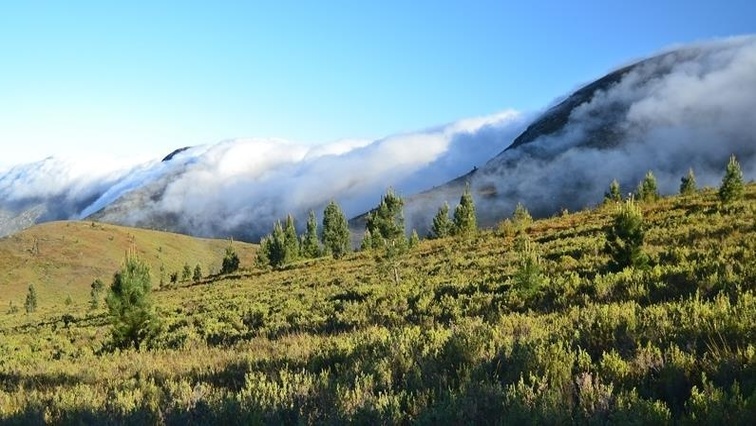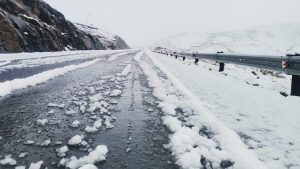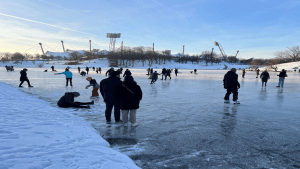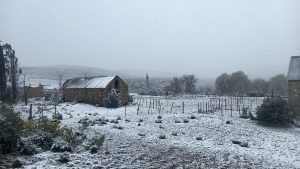Large parts of the Langkloof Valley in the Eastern Cape were turned into a white winter wonderland with heavy snow falling from Kareedouw to Uniondale this past week.
Many of the farmers’ nets which protect the fruit in this valley proved to be no match for the heavy snow.
Farmer Robin Baldie says it is the heaviest snowfall he has ever experienced. He says he currently doing all he can to save his crop after losing 700 000 in damage caused to eight hectares of his nets.
“It’s the first time that we have had nets collapse, so it’s a learning experience on how to get them up. We have got a team, behind me here there are about 50 guys, underneath the nets digging poles, we have got all our machinery here to try and get it lifted, so it’s going to take a couple of weeks to get it up and see what the damage is. Personally I love farming, I love planting trees, so the work that has gone into these to get them to where they are now is very sad. We have got a team of ladies that prune these trees, three or four times a year, so its heartbreaking for everyone to look at the damage that has been caused by the snow,” says Baldie.
Farmer Paul Lombard says the drought currently being experienced in the area coupled with water restrictions and the COVID-19 pandemic have made farming a tough job.
“In terms of labour the COVID-19 pandemic is adding more costs to your operation, from labour to procedures, the travel of workers and from a marketing point of view, the unsurity of the access of markets. So although we were able to in full operation, but still on the market side, it’s very difficult, especially with the harbours closing and also the African market that’s saturated and slow movement and low prices,” says Lombard.
The Ontwinkelings Dam, which is the main water supply for farmers, is less than a quarter full. Jan Uithaler, another farmer in the area, says they don’t get enough rain.
“The rain that recently fell is not enough, the effect it had on the farm is really minimal, the downside of that is that when we don’t get enough rain. There is no water for irrigation, so we the trees don’t get sufficient water to grow, which means our apples don’t grow to full capacity and we can’t export them, which means we lose money,” says Uithaler.
Farmers are pinning their hopes on the summer rainfall which they hope will bring much-needed relief.
The video below is on the snow impacting on farming in the Eastern Cape:






